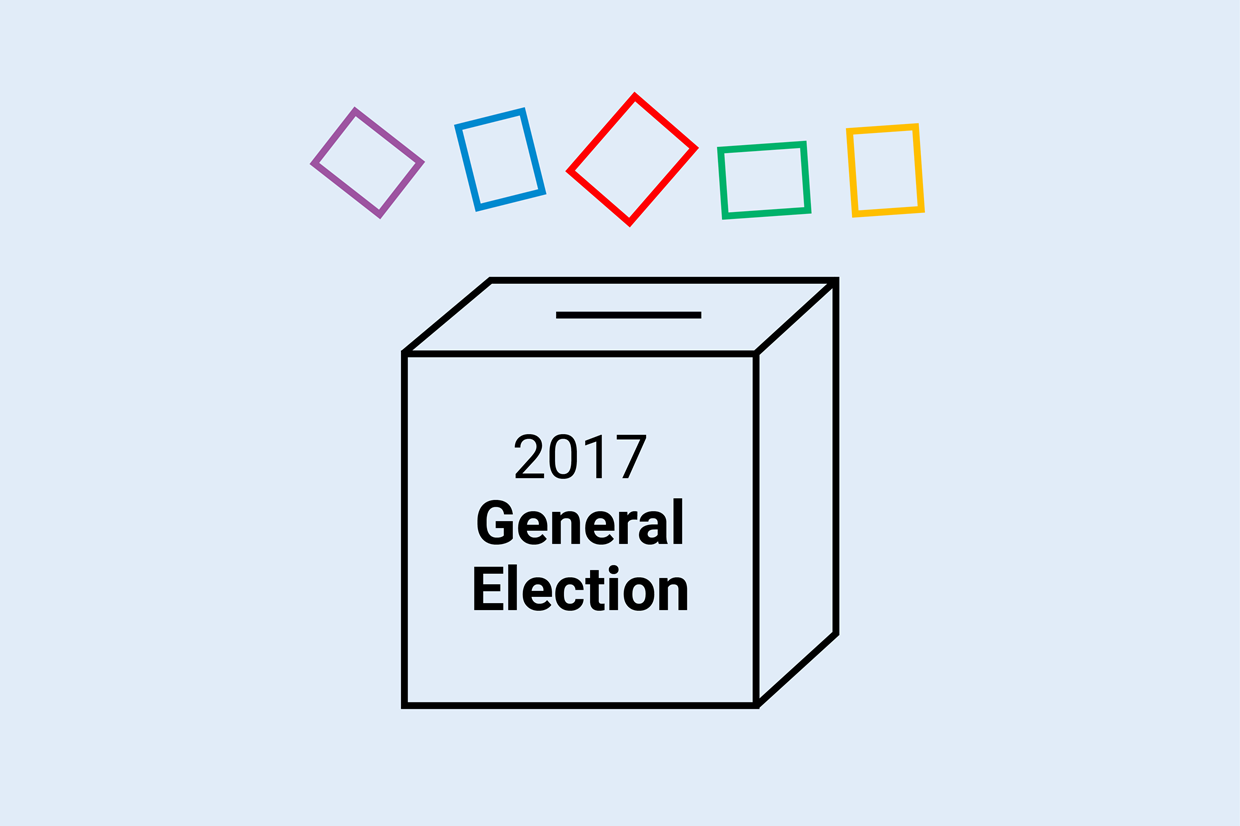By CNBC : With the bulk of seats declared in the General Election, no party has gained a clear majority and the U.K. now faces a hung parliament..
By 8:00 a.m. London time, Prime Minister Theresa May's ruling Conservative party has won 315 seats while the opposition Labour Party, led by Jeremy Corbyn, has 261 seats. Meanwhile, the Scottish National Party (SNP) has won 35 seats, the Liberal Democrats are at 12 and the Democratic Unionist Party has secured 10. Voter turnout was at 68.7 percent, according to the BBC.
There are 650 seats in total and 326 are required for a party to secure a parliamentary majority, meaning the country now faces further political negotiations. A hung parliament — a situation in which multiple parties hammer out a coalition government — arises when neither party secures the 326 seats needed for a majority. Investors aren't thrilled about that situation as passing legislation can be difficult with two parties that each hold strong political priorities. The political deadlock is also expected to hurt upcoming Brexit negotiations as well as May's political future, according to strategists.
The British pound dropped sharply in Asian trade on Friday, slipping below the $1.27 handle to a multi-month low. For the session, it is now down over 2.2 percent against the dollar, trading at $1.2665 at 8:00 a.m. London time and continuing to fluctuate wildly.
'May should step down'
After winning his seat back in Islington, North London, early on Friday, 68 year-old Corbyn called for May to step down. "People have said they have quite enough of austerity politics," he said in a speech. "The PM called this election because she wanted a mandate. Well, the mandate she's got is lost Conservative seats, lost votes, lost support and lost confidence."
In a speech on Friday, May said it would be incumbent on her party to offer stability if Conservatives win the most seats.
SNP leader Nicola Sturgeon, meanwhile, called the early results "disastrous" for PM May and expressed disappointment over the SNP's performance, Reuters said.
"We have seen two dramatic political miscalculations by two conservative (U.K.) PMs in a short time span, it's incredible," said Heather Conley, director of the Europe program at the Center for Strategic and International Studies.
'A big miscalculation'
On April 18, PM May surprised onlookers by calling a snap election— a decision aimed at strengthening her mandate to see the country through a hard Brexit. At that point, the Conservatives were polling ahead of Labour but as the campaign progressed, the polls narrowed sharply.
The Conservative campaign attempted to focus on the withdrawal from the European Union, repeating a mantra that only it can offer a "strong and stable" government as negotiations with Brussels heat up. Corbyn has said he will honor the U.K.'s decision to leave but he's widely expected to push for a soft Brexit and retain the benefits of the single market, a tariff-free trading bloc for EU members.
Terror comes to the fore
The U.K. has suffered three separate incidents of "terror attacks" in just three months, pushing the issue of security to the fore of the election as both main parties accused each other of weakness.
Corbyn was criticized in the media for appearing weak on a "shoot to kill" policy and has apologized for statements made in the past describing Middle East factions Hamas and Hezbollah as "friends."
Conservatives also felt a backlash. In her previous role as Home Secretary, May was responsible for the cutting of the U.K.'s police force numbers — a decision that many believed put the nation at a greater risk of terror.

UK election ends in hung parliament; Corbyn calls for May to step down
9 Jun 2017 10:12 AM
Prices may be delayed by 5 seconds. Prices above are subject to our website terms and conditions. Prices are indicative only
© 2023 Equiti, All Rights Reserved